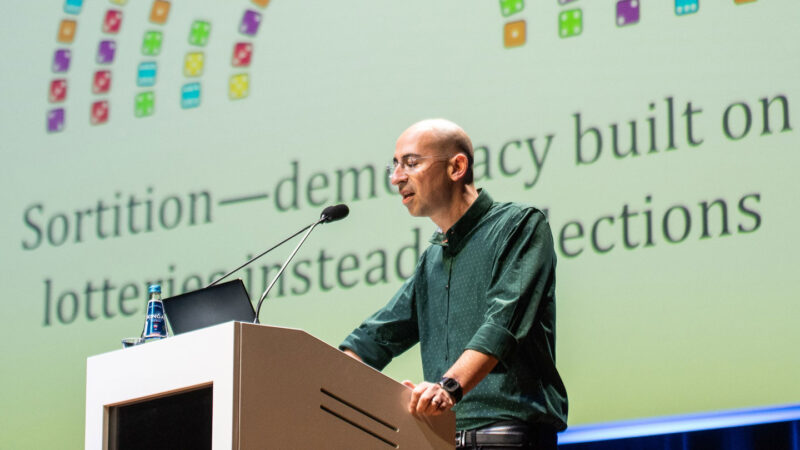Ariel Procaccia has always been fascinated by big questions and hard problems.
As a teenager, one of his favorite books was Fermat’s Last Theorem. It tells the tale of how a single math puzzle stumped the world’s greatest minds for more than 300 years. Another favorite was A Brief History of Time. That book explores deep questions about the universe.
By the time he went to college, Procaccia knew he wanted to study two of three things — math, computer science and physics. “But my dad is a physics professor, and it seemed weird to do the same thing he did,” Procaccia says. “So I chose the other two.”
Today, Procaccia is a computer scientist at Harvard University in Cambridge, Mass. There, he designs computer algorithms that solve problems quickly and fairly. Through this work, Procaccia has been able to tackle some big problems that directly affect people’s daily lives.
“I’ve worked on challenges like where to resettle refugees so that they are most likely to succeed. How to allocate food donations to organizations that need them. And how to design new forms of democracy,” he says. “I’m especially interested in problems whose solutions [have] a tangible impact on our society.”
In this interview, Procaccia shares his experiences and advice with Science News Explores. (This interview has been edited for content and readability.)
What project are you most proud of and why?
One of my favorite projects is Spliddit.org. It’s a free website that helps people divide stuff in a way that mathematically guarantees fairness. For example, one of the apps on Spliddit is rent division. Say a few roommates rent an apartment and have different preferences over rooms. The goal is to assign the rooms and divide the rent in a way that each roommate feels they got the best deal. Amazingly, you can prove that this is always possible! Since Spliddit’s launch in 2014, it’s been used by hundreds of thousands of people.
What are you most excited to be working on right now?
I’m especially excited about our work on fair algorithms for selecting citizens’ assemblies. These assemblies are tasked with discussing important issues. They also make recommendations for policymakers. They’re made up of people who are randomly selected from volunteers. But the random selection is done in a way that leads to an assembly that looks like the overall population. For example, there’s usually a similar number of men and women. At the same time, every volunteer has to have a fair chance of participating in the assembly. We developed an algorithm that balances these different needs. And it’s been used widely around the world.
What do you find most rewarding about your work?
In my job as a professor, I get to work closely with amazing graduate students. Over a typical five-year Ph.D., a very special, lifelong bond is formed. Professors and their students often speak of each other as “academic children” and “academic parents.” And as someone who has three actual children, I think there’s a lot of truth to that. In particular, when my students succeed and achieve their goals, it makes me very proud.
Any advice for future computer scientists?
This advice is not for those who aspire to be computer scientists, but for those who don’t! Computer scientist Edsger Dijkstra famously said that computer science is no more about computers than astronomy is about telescopes. I don’t know if I would go that far. But I think that a lot of computer science is basically about how to solve problems in the best possible way. And with that toolbox, you can tackle almost any challenge. So even if you believe computers aren’t your cup of tea, computer science might be.




